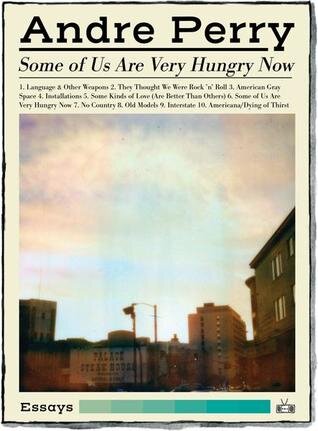SOME OF US ARE VERY HUNGRY NOW BY ANDRE PERRY
The interconnected essays that make up Some of Us Are Very Hungry Now by Andre Perry are affecting, timely, and make for a debut you can’t put down from a new and significant voice in nonfiction. Within its pages, Perry showcases his unique creativity and enviable dexterity as a writer by hopscotching from the traditional essayistic form over to the experimental, taking the shape of a screenplay, frank epistles, or even faux interviews. Perry reminds the reader words are often sharpened on both sides, giving them the capability to venerate or denigrate. “Human language,” he writes, “bends so flexibly; such subtle shifts in situation and intonation turn salutations into weapons.” These essays will make you question your accountability for the words you use; cause you to think twice about what you say, how you say it, and two whom.
Every one of these essays is in itself a unique expedition crossing time and time again into the deeply charted territories of race, self-conceptualization, privilege, and sexuality that Perry experienced in his life, sometimes as far back as childhood to more recent times, living in San Francisco and Iowa, or traveling abroad to Hong Kong. And, with Perry as our guide, we are more than willing to follow him as he dispenses insight in each essay with an unclouded lens, and expressive, lyrical language that sings right off the page. An astounding debut.
—Review by Nicholas John-Francis Claro






